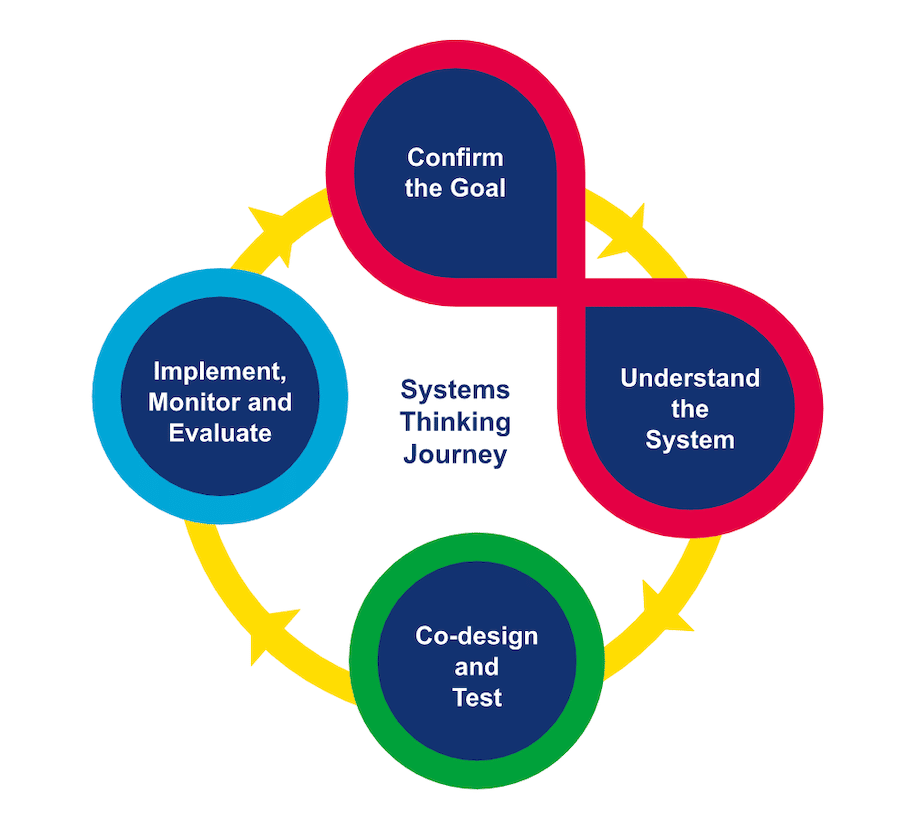Guest post by John Hunter, author of the Curious Cat Management Improvement Blog (since 2004).
Systems Thinking for Civil Servants is a resource by the UK Government Office for Science. It is a useful resource for those interested in systems thinking.
I have quoted some text from the website below.
A key premise of systems thinking is that sustaining large-scale systems change only happens if the entrenched patterns that drive the system are changed.
Very true. You improve not with exhortations, threats, and fear. You improve results by improving the system.
To get the most out of your collaborating community it is important to consider how to communicate your understanding of the system, and the data sets and evidence you have used to build this understanding (and the uncertainty and gaps in your understanding)
It is difficult to get a good understanding of complex systems. But it is much harder to communicate that understanding to all the participants in the system. This is something I very rarely see done well. This is something that is likely going to be difficult to do well; it is something Dr. Deming recognized as important.
Using systems thinking means understanding that we and our work sit within a system, not outside of it. If we change one part of a system we are likely to indirectly, or directly, affect another part. Thus we must identify and engage with others in the system that our area sits in and build a shared understanding of our system to ensure the changes we make are coherent and likely to succeed.
The idea that systems are interconnected and that performance changes directly and indirectly other parts of the system is fundamental to improving organizations. So much of traditional efforts are taken without acknowledging the interdependent nature of organizations.

Complex systems behave in a way that is greater than the sum of their parts – you can’t understand the system just by looking at individual elements, it needs to be studied as a whole. Likewise in complex systems there are underlying patterns – feedback loops – which mean that it becomes difficult to relate cause to effect and actions to consequences.
This is true and yet so often we try to assign responsibility to individuals for meeting defined targets without considering the impacts such management decisions make on the wider system. And that by seeking to improve results in part of the system by working on those things totally within the control of that part of the management system means much better potential solutions are not considered. There are significant challenges with designing management systems to work with an understanding of systems but if an organization commits to doing so and makes the changes necessary to do so the opportunities to improve are extraordinary.
The website includes many good ideas, I encourage you to check it out.
Related posts: Deming on Management: Appreciation for a System – 94% Belongs to the System – Systems Thinking: Feedback Loops – Optimize the Overall System Not the Individual Components – Transforming Jet-Hot by Viewing the Organization as a System


